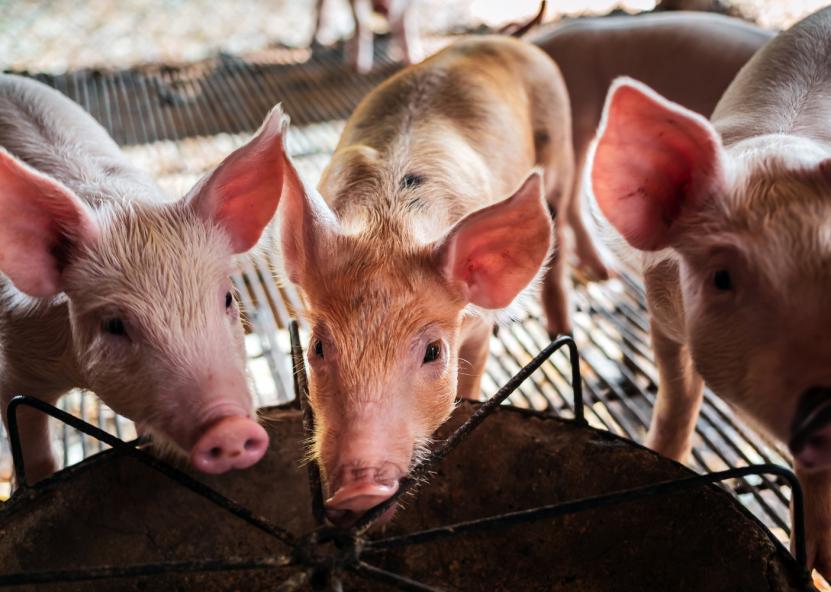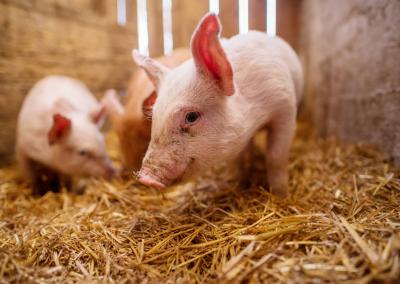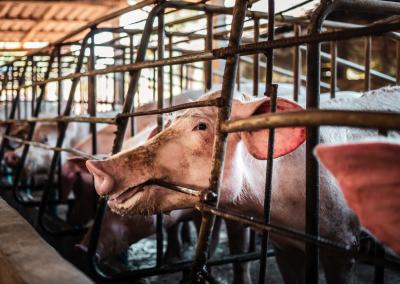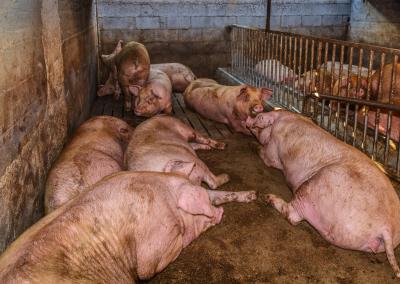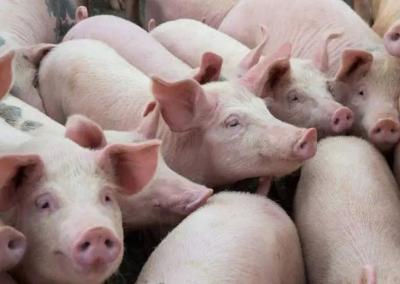Outbreaks side by side: second African swine fever outbreak recorded in Joniškis district
On 31 July, a third case of African swine fever (ASF) was confirmed on a pig farm in Lithuania, again in the district of Joniški. This time the infection was detected in the village of Plikiškių, Satkūnai municipality, within the 3 km protection zone where an outbreak of ASF was detected this week in the village of Milvydžiai. This means that the ASF virus is active and the risk of its spread is extremely high.
On 30 July. On 30/30, the State Food and Veterinary Office (SVVT) was informed of a sick 12-month-old fattening pig with a high temperature on 28 July – one of the typical signs of ASF. The owner of the pig tried to treat the pig herself without contacting the veterinarian. Unfortunately, the pig was found dead on the morning of 30 July. A total of three pigs were kept on the farm. VMVT inspectors immediately went to the site and took samples for laboratory analysis, which confirmed the outbreak of ASF today. All the necessary protection measures were soon activated: the pigs were killed and the premises were cleaned and disinfected.
The following surveillance and protection zones have now been established around the farm:
restrictions on the movement of pigs and on all movements. This applies to the 17 pig holders in the area, including one commercial pig complex with over 30 000 pigs;
all farmers and pig keepers are obliged to comply with strict biosecurity requirements;
mandatory testing of all hunted wild boar samples for ASF.
VMVT inspectors are continuing active controls and are assessing the need for additional protection measures. All farms in the zones will be inspected by the VMVT and the clinical status of the pigs will be assessed.
Following the outbreak of ASF in Lithuania, the European Commission has decided to place the municipalities of Joniškis, Satkūnai, Saugėlaukis, Skaistgirias; the municipality of Kelme district; and the municipalities of Tytuvėnai and Tytuvėnai districts in ASF Zone III;
This means that the movement of live pigs from this area is only allowed in Lithuania and only from farms that have fully implemented biosecurity requirements. Trade in pigmeat and pigmeat products is only allowed on the local market. The products must bear a special health mark. Exports of live pigs, pigmeat and pigmeat products to the European Union and third countries are prohibited.
Veterinary experts provide key recommendations for the prevention of ASF:
- observe your livestock and look out for unusual signs or behaviour;
- keep newly purchased pigs separated for a period of time and monitor their health closely;
- Separate sick pigs from healthy pigs until the cause of the disease has been identified;
- avoid contact between wild animals and domestic animals;
- comply with hygiene requirements, e.g. cleaning and disinfection of working clothes, equipment and vehicles entering and leaving the farm;
- keeping unauthorised persons and vehicles away from the farm;
- not to feed food waste to pigs.
The HSE reminds animal keepers to report immediately any suspicious clinical signs such as fever, sluggishness, disturbed appetite or sudden death. Self-treatment in such cases is not allowed – it is not only ineffective but also dangerous for the whole region. Every delay increases the risk of contagion spreading and causing serious economic losses, ranging from restrictions on individual farms to the suspension of exports for the whole sector.
Pig farmers are asked by the VMVT to monitor the health status of their pigs, and in case of any suspicion of a contagious disease, to report as soon as possible to a private veterinarian or to the VMVT by filling in a questionnaire or by calling the following telephone numbers: 1879 or +370 5 242 0108.



































































































